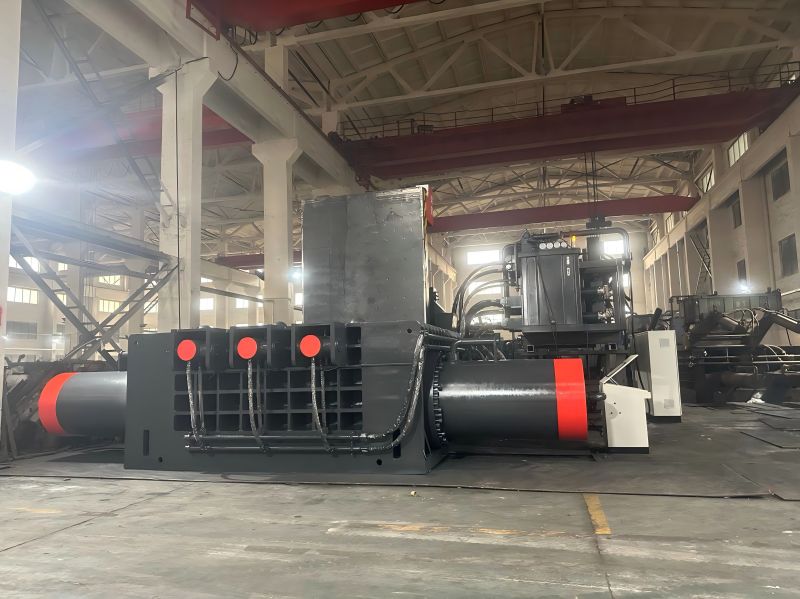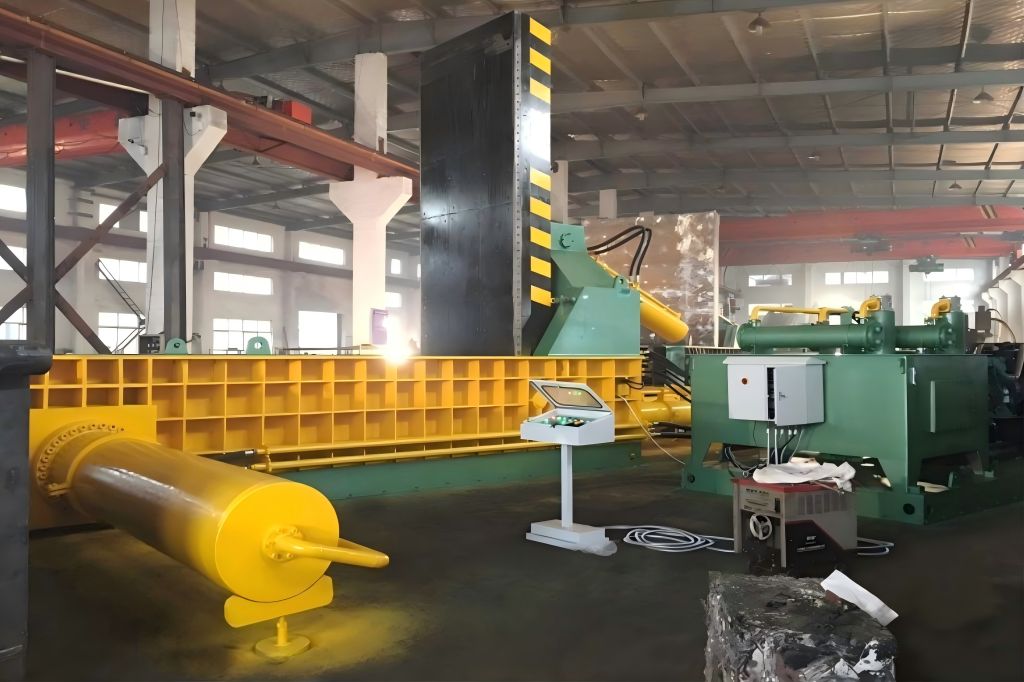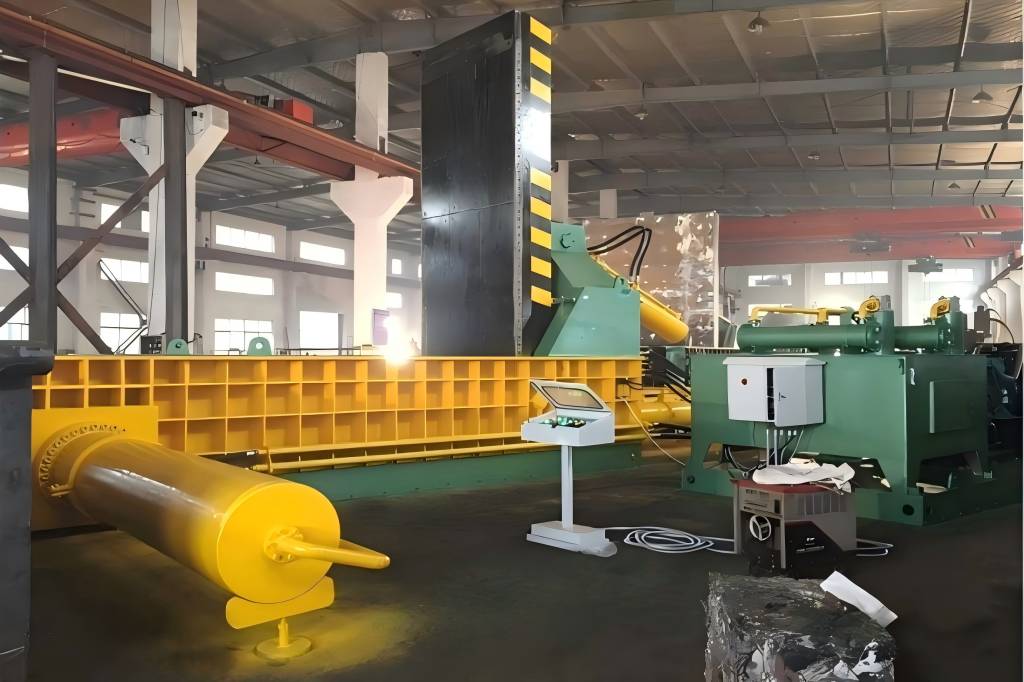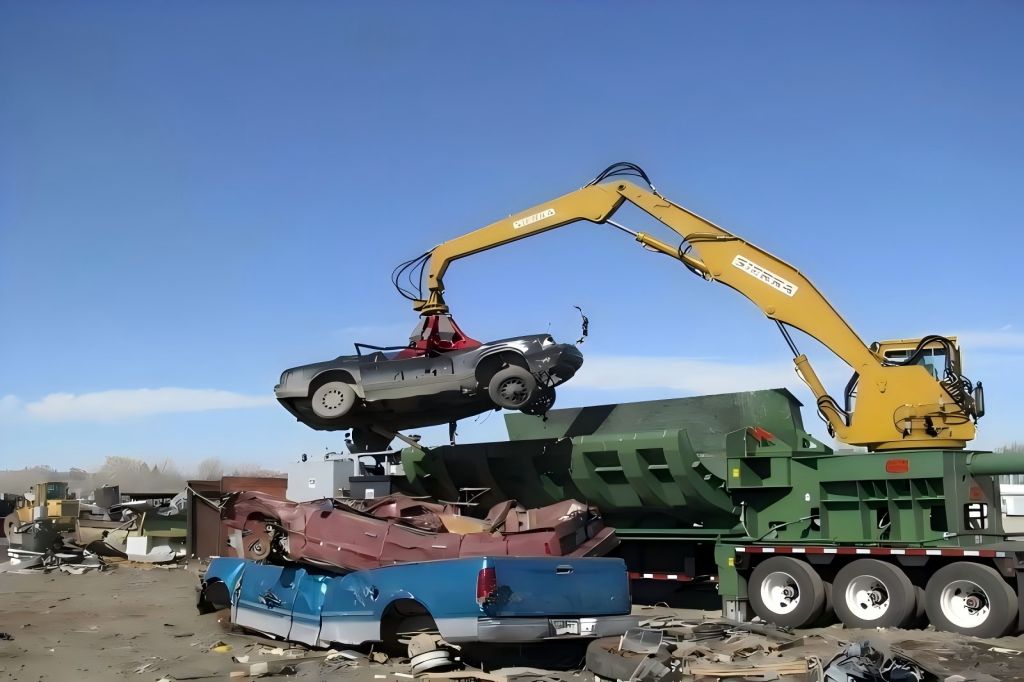Making the right choice between buying a pre-built scrap metal baler or building a custom one can significantly impact the efficiency of recycling operations. Each option comes with its own set of benefits and drawbacks, making it essential to thoroughly understand them for a well-informed decision.
Understanding the Role of Scrap Metal Balers
Scrap metal balers are essential tools in the recycling industry. These machines compress and compact recyclable metals such as aluminum, steel, and copper, making them easier to store, transport, and process. The global recycling equipment market was valued at $6.8 billion in 2024 and is projected to reach $9.5 billion by 2030, reflecting the growing demand for efficient recycling solutions.
The Case for Buying a Scrap Metal Baler
Purchasing a pre-built scrap metal baler is a popular choice for many businesses due to its convenience and reliability. Outlined below are the primary pros and cons of this approach.
Advantages:
- Instant Availability: Because pre-made balers are widely accessible, companies can purchase and use the equipment right away.
- Proven Design and Reliability: To make sure their products satisfy industry standards, manufacturers put them through a thorough testing process. This reliability minimizes the risk of malfunctions and ensures consistent performance.
- Warranty and Support: Reputable manufacturers usually provide warranties and post-purchase assistance to give customers piece of mind and help with technical problems.
- Regulatory Compliance: Commercially available balers are designed to meet safety and environmental regulations, saving businesses the hassle of ensuring compliance.
- Ease of Maintenance: With standardized components, pre-built balers often have readily available spare parts and established maintenance protocols.
Disadvantages:
- Higher Initial Cost: The upfront investment for a pre-built baler can be significant, potentially straining the budget of smaller businesses.
- Limited Customization: Standard models may not fully align with a business’s specific operational needs or spatial constraints.
- Potential Overengineering: Pre-made balers might include unnecessary features, increasing complexity and potentially impacting efficiency.

The Case for Building a Scrap Metal Baler
For businesses with unique operational requirements or budget constraints, building a custom scrap metal baler can be an attractive alternative.Nevertheless, this option presents its own unique challenges.
Advantages:
- Tailored Solutions: To ensure maximum functionality and efficiency, custom-built balers can be made to match certain operational requirements.
- Cost Control: By sourcing materials and components independently, businesses can potentially reduce costs compared to purchasing a pre-made system.
- Scalability: Custom systems can be designed with future expansions in mind, making it easier to upgrade as operational needs evolve.
Disadvantages:
- Time-Consuming Process: Designing and building a baler from scratch requires significant time and expertise, potentially delaying operations.
- Need for Specialized Knowledge: Without technical expertise, businesses risk creating a system with design flaws or inefficiencies.
- Regulatory and Safety Issues: It can be difficult and expensive to make sure a specially designed system conforms with safety rules and industry norms.
- Maintenance Challenges: Custom systems may lack standardized parts, making repairs and maintenance more complicated and expensive.
Factors to Consider When Making a Decision
Choosing between buying and building a scrap metal baler depends on several factors, including operational needs, budget, technical expertise, and long-term goals. Below are some key considerations to guide the decision-making process:
- Budget: Assess both the upfront and long-term costs of each option, including purchase price, maintenance, and operational expenses.
- Operational Requirements: Evaluate the volume and type of scrap metal your facility processes to determine the most suitable baler size and functionality.
- Technical Expertise: Take into account if your group have the know-how and abilities needed to plan, construct, and manage a unique baler.
- Space Constraints: Ensure the chosen system fits within the available space while allowing room for efficient workflow.
- Compliance and Safety: Factor in the effort and cost required to meet industry standards and ensure operator safety.
Data Insights: Cost and Performance Comparisons
Recent data from 2024 indicates that pre-built systems typically cost 20-30% more upfront but offer 15% lower long-term maintenance costs due to standardized parts. Custom systems, while saving up to 25% on initial costs, often incur 20% higher maintenance expenses due to unique designs. Additionally, pre-built balers have demonstrated a 90% average uptime, compared to 75% for custom-built systems, highlighting their reliability.
Industry Trends and Innovations
As recycling practices evolve, so do the technologies behind scrap metal balers. Recent innovations include:
- Automation: Automated balers with advanced sensors and robotics are reducing labor requirements and improving efficiency.
- Energy Efficiency: Producers are prioritizing the development of energy-saving designs to reduce operating expenses and minimize environmental impact.
- Smart Technology: The integration of IoT and AI enables continuous monitoring, anticipatory maintenance, and informed decision-making based on data insights.
Conclusion
Whether to buy or build a scrap metal baler largely depends on the unique requirements and objectives of the business. While pre-built systems offer reliability and support, custom solutions provide flexibility and cost control. Carefully weighing these factors will ensure a choice that optimizes efficiency and drives success in recycling operations.




